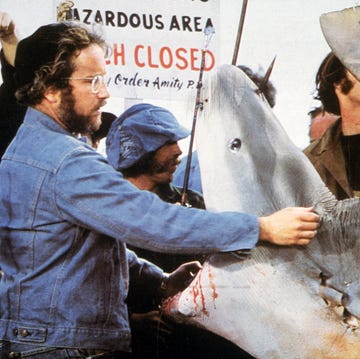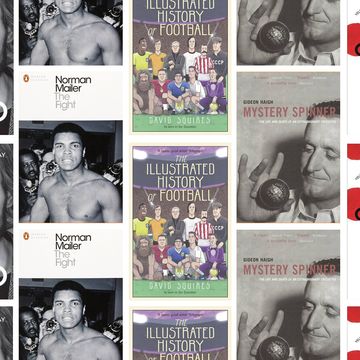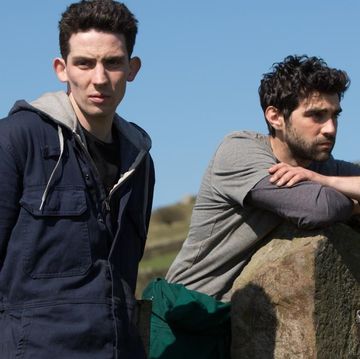If you still think that quarantine represents your best chance of accomplishing all the major life goals that have so far eluded you, from flamenco guitar to your zombie rom-com screenplay, frankly we admire your chutzpah in the face of such uncertainty.
More likely, as lockdown begins, job insecurities grow and the corner shop’s wine supplies dwindle, comfort-bingeing episodes of Frasier will represent a more realistic cultural ambition.
The one thing most of us have in rich and plentiful supply right now is anxiety. The other is time (unless you’re a working parent or delivery driver of course, in which case, godspeed).
Television and alcohol thrive in such conditions. But, more fruitfully perhaps, meditation does too, and it may just help you hold it together over the weeks and – deep breath – months to come.
My only credentials for telling you this are as follows: the last time I had this much time and anxiety at my disposal was in 2002. It’s also when I first gave meditation a go. I’d just had to cut short an around the world trip because an amoeba was trying to eat my eye and I needed to come home for treatment.
I had just split from the girl I was travelling with who I found out now had a new boyfriend in Australia. I was unemployed and living at home with my parents. Small potatoes looking back of course but for me it was a quarter-life crisis before the phrase had been invented.
Isolated and disconsolate about the future, I found a brilliantly 1960s book called ‘The Secrets Of Relaxation’ on my parents bookshelf and decided to try a basic breathing exercise. Counting ‘one’ for each deep in and out breath, and so on.
Just 10 or 15 minutes of this a day over the following few weeks gave me a few things I hadn’t been able to find for a while: some fleeting semblance of relaxation, a nod towards a routine and a temporary pause on the scattergun thoughts flying around my head at high speed. Basically, it helped me to calm the f*** down. I haven’t needed those things again quite as much as I do now.
In the years since, I’ve read books, done a zen class (uncomfortable), kept it up, let it slip, done a transcendental course, been given a mantra, picked it up again, forgotten my mantra, tried it in churches (surprisingly noisy), toilets (unsurprisingly noisy) and even as a regular practice on the tube (just a bad, bad idea).
It’s the first thing to slip when things are good and time is short but it’s the first thing to bring back when they’re not. Yes, it’s a chequered cv but here are some suggestions learned the hard way:
Start Simple
There’s enough to be anxious about without worrying which meditation technique you should be committing to. Meditation is a catch-all term for hundreds of more specific techniques and practices. Google it and you’ll see words like Insight, Transcendental, Guided, Zazen, Metta and dozens more. While these differ in technique and philosophy, what they all come back to is paying attention and becoming present. And at their most basic they help you control your breathing – which directly affects your state of mind. When your breathing is more peaceful, your mind and body follow. So start with a simple mindfulness meditation which is easy to try on your own and offers benefits – calmness, acceptance, reduced stress – which can show up quickly.
How To Do It
- Learning is pretty straightforward, whatever your preconceptions.
- Find a comfortable, quiet spot.
- Close your eyes and pay attention to your breathing.
- As you breathe in, be aware of it.
- As you breathe out, be aware of it.
- When your mind wanders – and it will – acknowledge it and return to your breathing.
- If you can't stop thinking about whether you have enough cans of tinned pineapples in your cupboard. That's fine. Acknowledge it and return to your breathing.
- Keep going. Start with a 10 minute timer, and build up week by week as you wish. That’s it.
- Schedule it every day from now on. It will get better/easier/more normal as you go.
Keep going
One day you’ll be buzzing when you’ve finished and think you’ve cracked it. The next day, you’ll think it’s been a waste of time. It’s best not to see it as success or failure, like a level on a video game. It’s a subtle business with no right or wrong and all you can do is keep going to the end, and keep turning up each day.
Put Your Phone Down
You may have an app on your phone like Headspace that offers guided meditations and advice. I’m sure they are great and useful in their own way but one of the many things that makes meditation worth doing is as a designated break from a screen of any kind.
And in these strange days more than ever, when isolated at home, bombarded by Zoom meetings and Slack groups on top of email, WhatsApp and FaceTime. To use technology to help you meditate seems a little like trying to put a fire out with paraffin.
It’s The Fastest Way To The Present Moment
Ok, the present moment may not seem like a particularly desirable place to be right now but actually in your living room at 8.02am on a Wednesday, maybe it is all ok. Acceptance is a central tenet of Buddhism after all and accepting where we are right now might be half the battle. Even in the early stages of meditation, it can take just a few seconds to get there.
Don’t See It As A Catch All Cure Or Performance Enhancer
In recent years, we’ve been blitzed with how we ‘should’ all be doing meditation, often from Silicon Valley CEOs and the life hack brigade who expound on how it helps them perform ‘optimally’ at work by increasing focus for 20 hour shifts. Forget about that.
You may have heard about the long-term health benefits too: lowering blood pressure, reducing memory loss. Forget about them too. Useful once we’re out the other side, but not important right now. The reasons to do it now are that it is proven to reduce stress and control anxiety. Simple. Oh, and it may also boost the immune system which can’t be a bad thing right now either.
Let It Grow At Its Own Pace
As you do it more and more, you may well want to expand your horizons. There are countless books, articles and YouTube guided meditations but if you’re starting from scratch the sheer choice can be counterproductive, and a block to actually doing it.
If you read anything, try the perfect combination of ‘How to Relax’ and ‘How to Sit’ by 93 year-old Buddhist monk Thich Nhat Hanh. They’re so short, they will take about an hour to read. And so simple, you’ll wonder why you didn’t read them years ago.
Spend the time now and you will have laid some foundations that you can turn to when life gets busier again. If you keep it up, you may find it starts to seep in to your everyday life too, when you can pay attention to your breath, bring yourself back to the present moment and focus on what you’re doing right now.
Try it when washing your hands for the 17th time today. Or disinfecting the Occado delivery. Or cooking dinner. Hell, it may just make you more compassionate and less self-obsessive which has to be another check in a pretty long list of reasons.
Like this article? Sign up to our newsletter to get more delivered straight to your inbox














